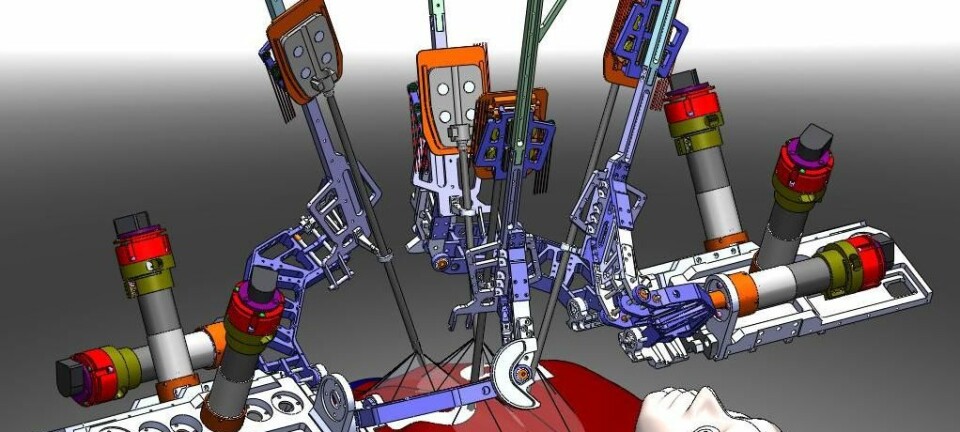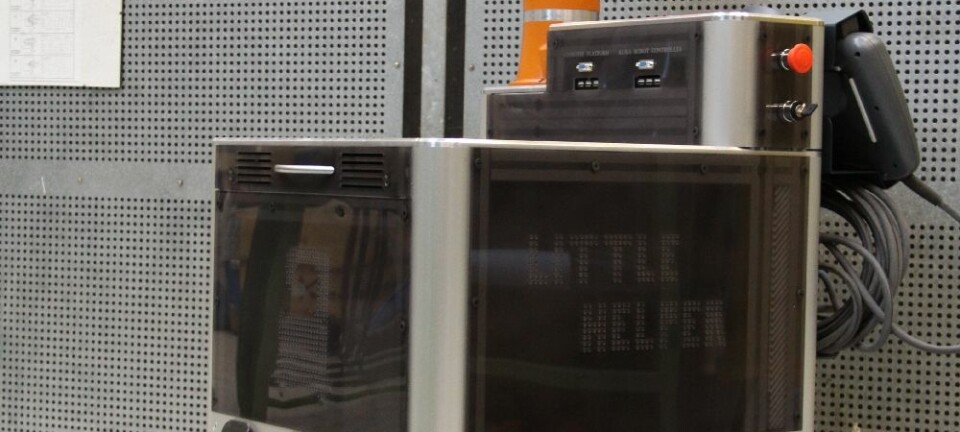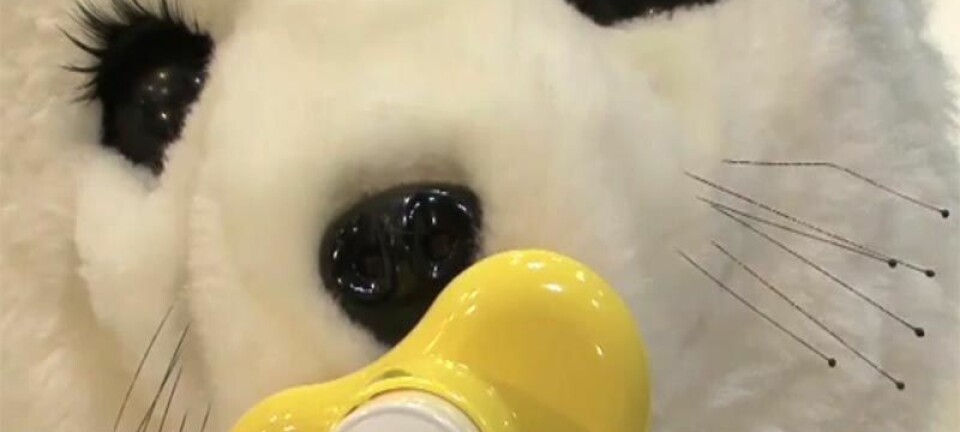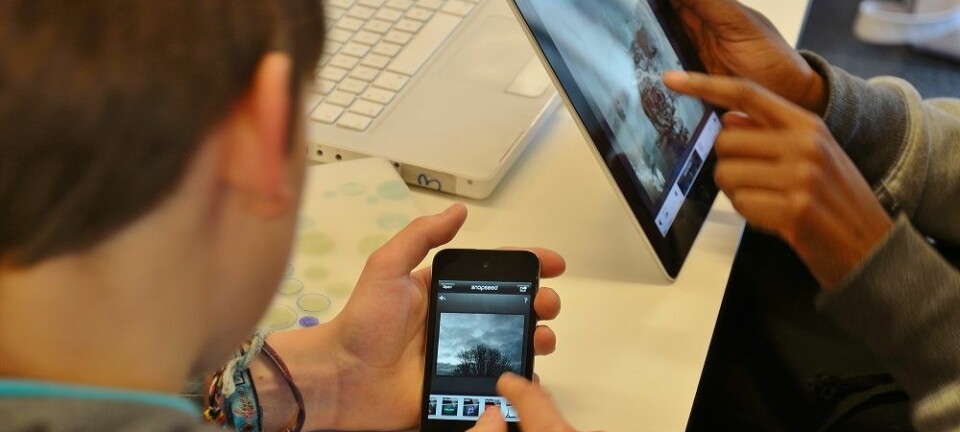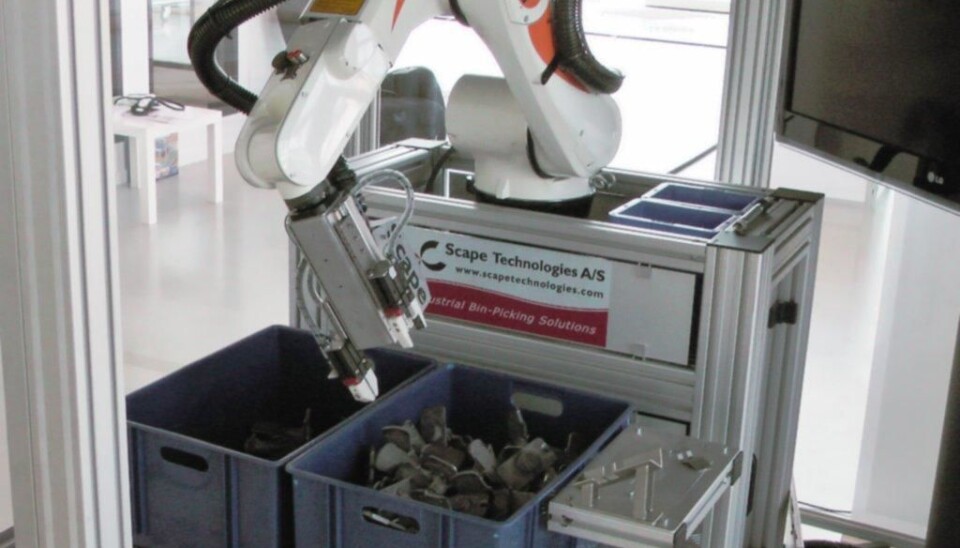
Memory makes robots more competitive
New technology teaches robots to learn from their own mistakes and successes, making them more efficient at performing their work.
Danish scientists have developed a new robot technology empowering robots with both intelligence and memory.
Fear not, we’re talking robots of the industrial kind – not the giant killer-machines we know from the cinema. Actually, we’re talking about something as nondramatic as the technology behind robotic arms.
With the new technology the scientists have successfully developed robots that could strengthen the Danish industry sector.
New technology makes robots faster
A great deal of time in modern production is spent moving objects from one place to another. It’s repetitive work typically carried out by humans.
Robots would be the obvious choice for such tasks, but for a robot the seemingly simple task of moving an object comes with great difficulty. It needs to be programmed to know exactly where it is best to grasp the object. And if there is a more than one type of object on the conveyor belt, the robot needs to be fed repeatedly with a new set of instructions, making it more convenient to just let humans perform the task. At least, that is how it’s been until now.
Researchers from the University of Southern Denmark (SDU) have teamed up with Danish robotics software developer Scape Technologies to equip the robots with an artificial intelligence that enables the robots to calculate the best possible grasp for a given object. But that is not the only robotics revolution underway.
”The robots can also learn from their own mistakes – and that is certainly not common in industrial production,” says project leader Professor Norbert Krüger of the Mærsk Mc-Kinney Møller Institute at SDU.
The robots have been given a kind of memory and with that they get one step closer to becoming like us.
Securing production with intelligent robots
Initially, the scientists intended to make the robots far smarter than they are now.
“In the beginning we attempted to get the robots to analyse and calculate every possible outcome of a single grasp. But there was too much data,” says Krüger.
The complex calculations could not be processed within a reasonable timeframe, and the researchers ended up settling for a simpler system that might result in more grasp mistakes from the robots but proved more effective in the long term.
When confronted with the question whether it is desirable to make robots smart enough to overtake human work the professor’s mind is set: There is a need for greater productivity and competitiveness if we wish to maintain production in Denmark and the EU.
”If we don’t make the production more efficient there will not be any production left,” says Krüger.
The team of scientists is now in dialogue with Scape Technologies about how best to implement the new technology.
Robots remember the wrong grasp
By fitting the robots with memory, Krüger hopes to make them even more competitive against humans – a hope that results from current testing of the project support. Robots with the new intelligent technology made 20 percent fewer errors than manually configured robots.
”It helps the companies since it makes everything faster,” says Krüger.
While errors are still part of the process, errors are key to how the robot’s memory works. By recording the error in its memory, the robot will know exactly how not to grasp an object of same size and shape the next time it encounters it.
The German professor has been involved with robotics for many years – focusing primarily on development of cognitive systems. It was during his work with this that the idea of teaching the robots to remember arose. And the professor is satisfied with the outcome of the idea.
He believes that by studying grasp techniques and production, the team may have developed something that will impact production of the future.
“This is one of those projects where basic research has a direct impact on development and production.”
---------------------------
Read the Danish version of this article at videnskab.dk
Translated by: Kristian Secher
